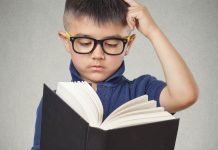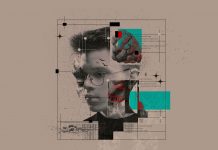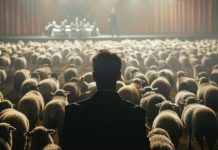Fundamentalist movements, extremist and sectarian religious beliefs, manipulations of the mass of believers, conspiracy theories within religious sects, and other such threats, emphasise the need for critical thinking.
Enhance your critical thinking. Read more of our articles on the topic.
Critical thinking is not about what we think, but rather about how we think. It represents the willful and continuous struggle of man to balance his need for heuristics or cognitive shortcuts with the need to constantly test their validity. When applied, critical thinking restores our right to freedom and gives relevance to our right to choose, to want, and to understand. It helps us cleanse our worldview and free ourselves from false beliefs, so that we become a person with our own, verified beliefs, instead of remaining passive followers of the beliefs of others.
There is much at stake in identifying and analysing our beliefs, which can be briefly explained as follows: our values are the synthesis of what is important to us. Our beliefs crystallise around our values. From the union of our values and beliefs, our worldview is formed, which, in turn, gives birth to attitudes, and these are manifested through choices, in actions and behaviours, becoming, through repetition, habits. Finally, habits summarise the nature and identity of each person, which can thus be essentially defined as the sum of his or her beliefs. So, how can we ensure the rationality and relevance of our beliefs, and what can we do if we find them to be erroneous or irrational?
Beliefs, worldview, and the filtering of reality
Man acts on the basis of accumulated beliefs, about which he is conscious or not, or which he has intentionally or subconsciously assumed. Beliefs can be based on facts or values, true or false, certain or less certain. Unlike factual beliefs, value-based beliefs are more difficult to identify and categorise because they depend on different reference systems. Therefore, in this analysis we will focus on the latter.
Beliefs, in general, and values, in particular, have the ability to determine not only what we hold as fact, but also our interpretation of reality. This is because we tend to filter all information, before even analysing it, through our worldview. Therefore, our worldview is often compared to a prism which disperses light into different colours. In the same way, our worldview transforms information according to the established pattern of beliefs from which it is formed.[1]
Usually, without being aware, we tend to notice facts and experiences that strengthens our beliefs more easily than things that counter our beliefs.
Writer and philosopher Lewis Vaughn recalls a study that demonstrates this. A group of white students was asked to examine a picture in which two men, one white and one black, were sitting on a bench in a wagon. The white man had a knife in his hand with the blade retracted in the handle. When the students were asked to recall the details of the photo, half of them stated that the black man was the one with the knife in his hand.[2] Prejudices about black people had influenced their perception of reality. Unconsciously, we defend our established beliefs and eliminate arguments that do not align with our worldview.
Superstitions work according to the same pattern. For example, in the medical world there is the idea that full moon nights are the busiest and most difficult nights. Even though the busyness of nights generally does not differ from each other, the full moon nights remain in the active memory of doctors holding this superstition.
The brain prefers cognitive shortcuts
The brain can turn information and experiences into symbols, and can identify patterns. In the face of a deluge of complex information, it seeks cognitive shortcuts. This mechanism explains why it is easy for us, often unconsciously, to consider the ideas of the people we admire to be true. It also explains why personal experiences are often taken as concrete evidence, while the demarcation point between what we feel to be true and what we know to be true becomes very unclear.
This type of unconscious process is meant to facilitate smoother thinking. Cognitive shortcuts such as generalisation, prejudice, cataloging, and ignorance are mechanisms for simplifying life, and defending and streamlining reactions. But they can also become errors of thought. They protect our beliefs, our emotions, preserve our energies or channel them to our consciously assumed goals, but at the same time they can be an obstacle to necessary yet painful change and evolution.
Despite the threats that labelling poses to critical thinking, according to German philosopher Gadamer Hans-Georg the elimination of all prejudices is a utopia, in that it itself is a prejudice. The brain cannot function without labelling, which helps for better and faster cognition.
The challenge for us is to understand this mechanism of the brain and to be able to diversify our labels as much as possible. A man is neither an angel, nor a demon. He can be harsh, cruel, gentle, empathetic, restless, tired, nervous, selfish, or sometimes characterised by several attributes at the same time. The more detailed and flexible we are in our labelling, the better our prejudices can be managed.
The problem of prejudice is the lack of analysis involved when it passes into one’s consciousness, and its transformation into erroneous conscious judgments. Prejudices must be constantly filtered and critically re-evaluated. Stereotypes are formed on the basis of beliefs considered to be irrefutable, and by repeating the actions that arise from them. But if beliefs are not true, or continually changing in relation to changing circumstances, the stereotypes of the human brain can act against our best interests.
“That’s just how I was born”
Logic is a way to reach conclusions by combining ideas. It’s math that doesn’t just work with numbers. Logic uses established and accepted ideas to establish new ones, but dependent on a priori beliefs. If a magnet has the ability to attract iron, and something is attracted to the magnet, that something, based on logic, is a piece of iron. This conclusion is correct only if there are no other materials attracted to magnets. Such metals do exist—nickel and cobalt are the most common of them. Therefore, logic is not enough to guarantee a truthful conclusion. Even perfect logic operating with an erroneous belief will always lead to an incorrect conclusion.
It therefore becomes important to analyse more closely the beliefs we have and their sources. Most beliefs and values are assimilated during childhood. The beliefs of our family, friends and culture are involuntarily adopted. They define the largest and most important part of one’s worldview. The more things we believe at an early age, the stronger and better internalised they become, so that they become more resilient to external threats. They become our stereotype, and giving up or correcting them is perceived as a direct attack on our identity. An example of this may be the resistance of most people in traditional religious circles to a possible change in religion. “That’s how I was born! This is the religion in which I’ll die!”
Children who were abandoned in orphanages come to believe that they are not good enough, and they reinforce this belief by constantly looking for and identifying evidence in its favour as a means of avoiding a fresh disappointment.
The beliefs we acquire in childhood, so entwined with our personal identity and system of thinking, represent critical thinking’s greatest vulnerability. Even if, through training, we instrumentalise our thinking process and perfect it, the veracity of our conclusions depends on the information, values and beliefs with which we operate. If the background beliefs, which select the premises, are wrong, then, regardless of the quality and logic of thinking, our conclusions will be wrong.
Acquired and unacquired tastes
It is not just beliefs and values that are assimilated during childhood (when we are unable to critically filter them) but our tastes as well. Habit educates our tastes. But, through education, we learn to analyse our tastes, and then decide what we want to like.
We are as attached to our beliefs as we are attached to our tastes. But it’s important to point out that in the absence of critical thinking, we’re not really what we are, we’re not what we want to be, we don’t want what we want, and we don’t like what we like.
Critical thinking is what gives us the opportunity to review our worldview, to strengthen the right beliefs that we decide to assume, and to eliminate the wrong ones. Such a process is at least as difficult when changing our tastes.
Although it is normal to be what we have been educated to be, what we have inherited genetically, and what we have become through influence, all of this, through the mechanism of critical thinking, must be continually verified, and thus some beliefs will be strengthened, and others removed. Changing our beliefs can be achieved by re-evaluating the veracity of the information on which they are based, by identifying new, more relevant information, or by verifying and correcting our thought process.
If, from the point of view of truthfulness, not all tastes can be evaluated, then beliefs must be true. Beliefs will then become criteria for choosing tastes. Physical health influences mental and spiritual health. Assuming this belief helps us to choose to eat only foods that, in addition to the criterion of taste, also meet the criterion of health. Another effect of this belief is the impetus to diversify food intake by trying new foods which can replace unhealthy ones.
Critical thinking, reason, and faith
Critical thinking does not place reason on a pedestal like some deity, but rather drives away the demons of persecution, terrorist movements, and xenophobia, to name a few. Faith is based on knowledge and manifests itself in the realm of the unseen, hoped for, and eagerly anticipated. Evidence of faith is what strengthens the will and thus determines behaviour. The more stable our beliefs, the more natural and consistent our behaviour.
Critical thinking, on the other hand, through its conditionality to information and facts, will always be subordinated to a primary cause.
As an ability of the human being, and as an instrument of knowledge, reason can only operate with the data that is already in the system doing the thinking. Reason belongs to the human being, but the human being does not belong to reason. It is not the thought which gives birth to the being, but the being which gives birth to the thought. Consequently, reason is not and cannot become the absolute threshold or the primary cause of all things. Man, in turn, has been determined by something far greater than human reason.
Enhance your critical thinking. Read more of our articles on the topic.
Ștefăniţă Poenariu is the president of the Holistic Christian Education Association, which operates Transylvania International School.



















